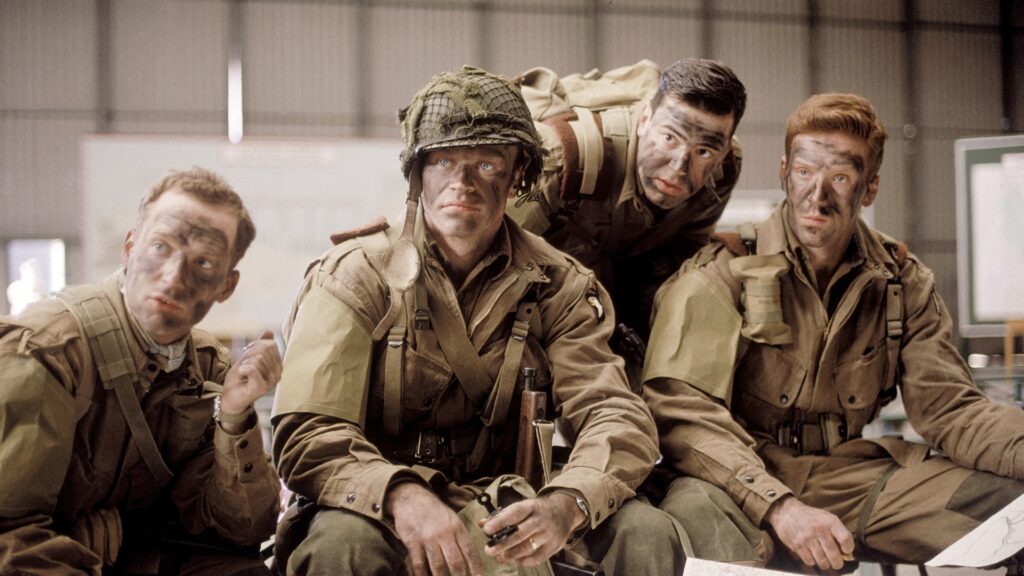The term “Thousand Yard Stare” is often used to describe a distant, unfocused gaze, typically associated with intense psychological distress. It’s a phenomenon that has been observed in individuals who have experienced traumatic events, especially in military contexts. This article delves into the meaning of the thousand yard stare, its causes, and its implications.
What is the Thousand Yard Stare?
The thousand yard stare refers to a vacant, unfocused gaze that appears as if the person is looking far beyond their immediate surroundings. This expression is often seen in people who have experienced extreme stress, trauma, or prolonged exposure to life-threatening situations. The term was popularized during World War II when war correspondents and military personnel used it to describe the hollow, detached look often seen in soldiers returning from combat.
Causes of the Thousand Yard Stare
The thousand yard stare is typically associated with Post-Traumatic Stress Disorder (PTSD) and acute stress reaction. Here are some common causes:
- Combat and War: Soldiers and veterans are the most commonly associated group with the thousand yard stare. The intense and prolonged stress of combat can lead to this detached expression.
- Trauma: Individuals who have witnessed or experienced traumatic events, such as natural disasters, accidents, or violent assaults, may develop a thousand yard stare as a psychological response.
- Chronic Stress: Prolonged exposure to high-stress environments, whether in a war zone, a high-pressure workplace, or a chaotic home environment, can lead to symptoms associated with the thousand yard stare.

Psychological Impact
The thousand yard stare is not just a facial expression; it reflects a deeper psychological impact. It is often a sign of dissociation, where a person mentally distances themselves from a situation that is too overwhelming to process. This coping mechanism can be a temporary response, but in some cases, it might indicate the development of PTSD or other mental health issues.
Recognizing the Signs
Understanding the signs of the thousand yard stare can help in identifying individuals who may need psychological support:
- Distant Gaze: The person appears to be staring into the distance without focusing on anything specific.
- Unresponsiveness: They may seem disconnected from their surroundings, with delayed or minimal responses to external stimuli.
- Detachment: A sense of emotional numbness or lack of interest in what is happening around them.

Coping and Support
For those experiencing the thousand yard stare, it’s essential to seek professional help. Therapy, particularly cognitive-behavioral therapy (CBT), can be effective in treating the underlying causes such as PTSD. Here are some steps that can help:
- Therapy: Professional counseling or therapy is crucial in addressing the root causes of the thousand yard stare. CBT, in particular, helps in reframing negative thoughts and developing coping strategies.
- Support Systems: Having a strong support system of friends, family, or support groups can provide the emotional backing needed to navigate through the trauma.
- Mindfulness and Relaxation Techniques: Practices such as meditation, deep breathing exercises, and yoga can help in reducing stress and promoting mental well-being.
- Medication: In some cases, medication might be prescribed by a healthcare provider to manage symptoms associated with PTSD or severe stress.
Conclusion
The thousand yard stare is more than just a facial expression; it’s a window into the mind of someone who has experienced profound stress or trauma. Recognizing this symptom and providing the necessary support can make a significant difference in the recovery process. Whether through therapy, support systems, or stress-reduction techniques, addressing the underlying causes of the thousand yard stare is essential for mental health and well-being.




Do you have a spam issue on this site; I also am a blogger, and I was curious
about your situation; we hace developed some nice practices and we aree looking to trade
methods with other folks, please shoot me aan e-mail if interested. https://Lvivforum.Pp.ua/
No i don’t have this issue